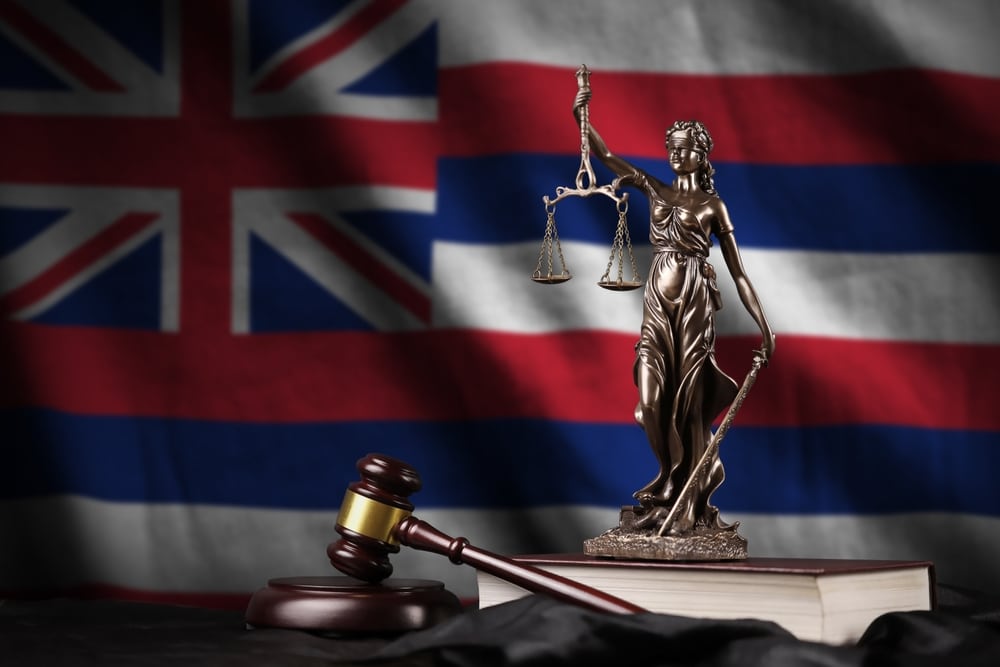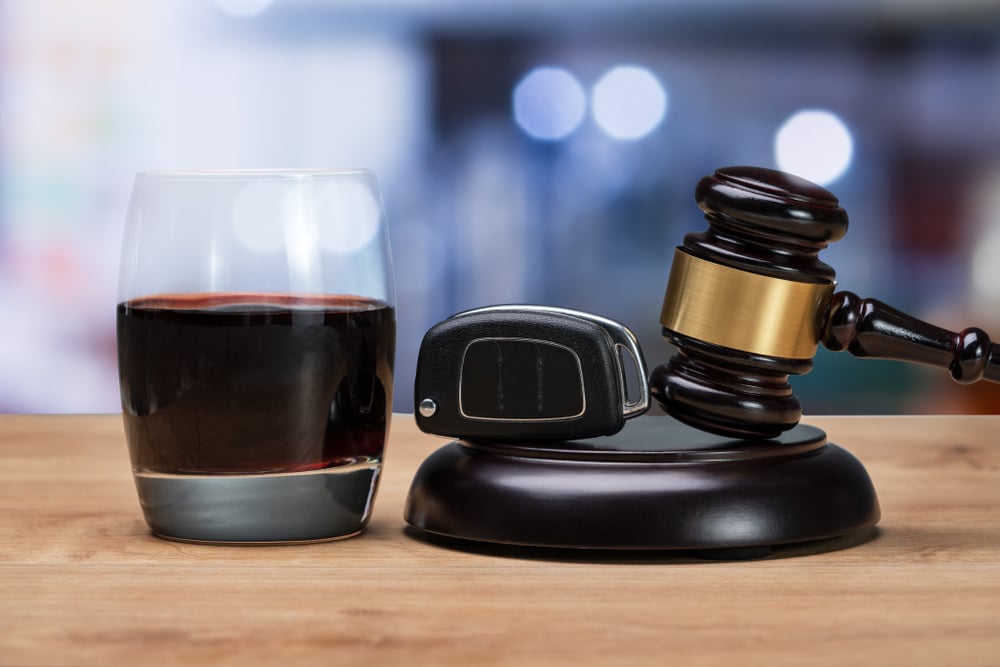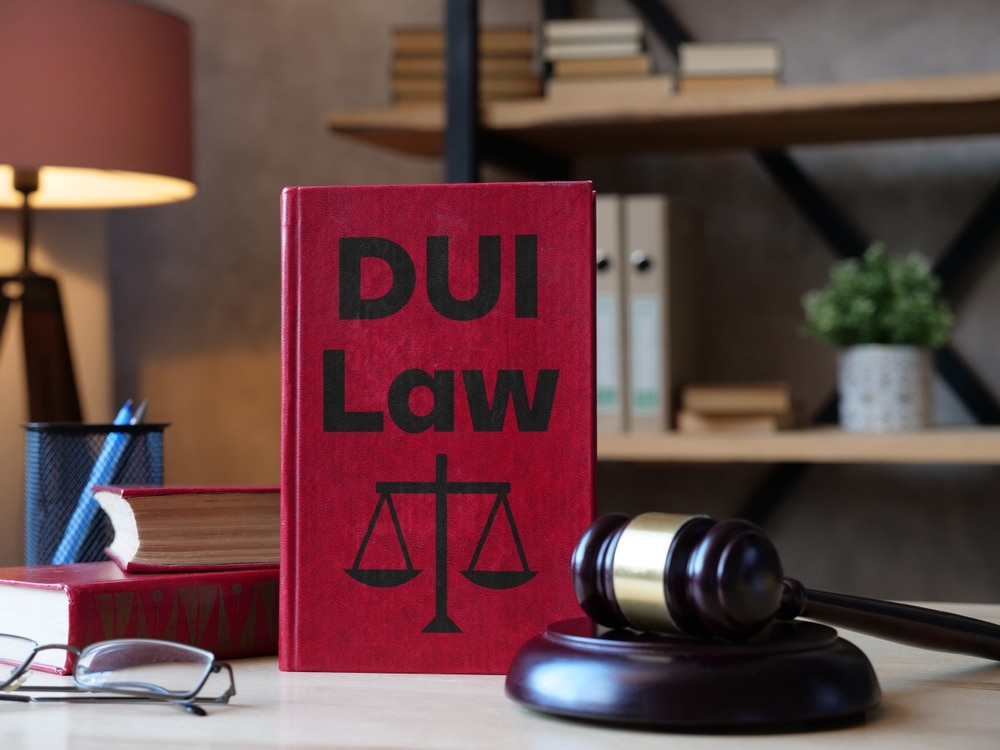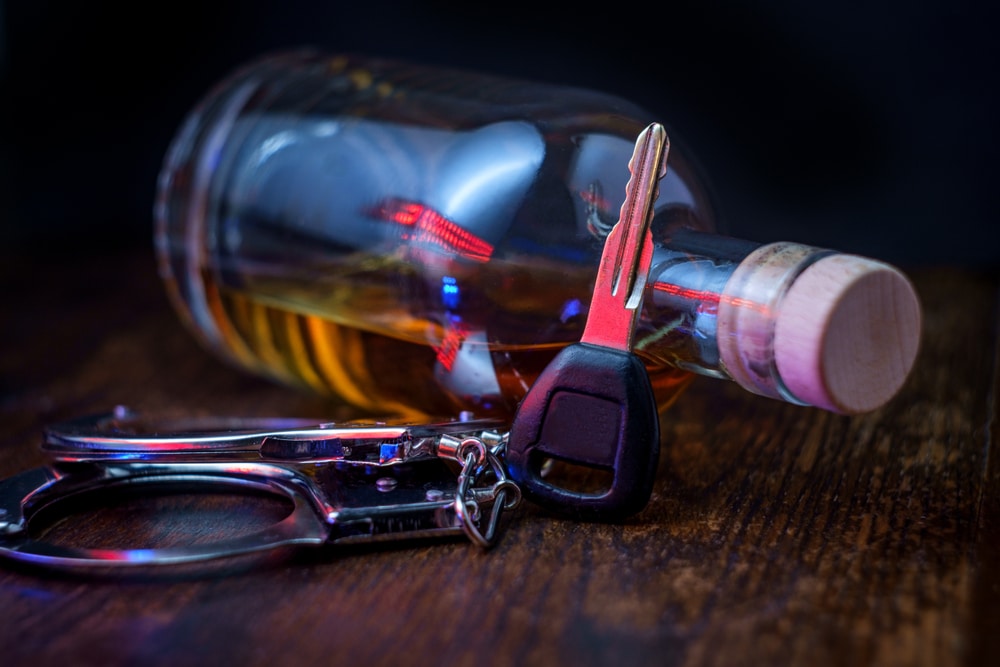
Hawaii maintains strict DUI laws, known locally as Operating a Vehicle Under the Influence of an Intoxicant (OVUII). The state enforces a per se blood alcohol concentration (BAC) limit of 0.08% for drivers 21 and over, and 0.02% for drivers under 21. Hawaii operates under implied consent laws, requiring drivers to submit to chemical testing when requested by law enforcement with probable cause.
The state’s unique geography and tourism-focused economy create distinct enforcement challenges across its islands. Law enforcement agencies coordinate efforts between county police departments and state authorities, with enhanced enforcement during peak tourist seasons and major events. Officers undergo specialized training in DUI detection and enforcement procedures specific to Hawaii’s environment.

0.08% or higher for regular drivers and 0.04% for commercial drivers

Yes

3 months

Mandatory

Yes (0.15%+)
Hawaii’s DUI landscape is shaped by its island geography, tourism industry, and military presence. Each island presents unique enforcement challenges, from busy tourist areas in Waikiki to rural communities on neighbor islands. The state’s reliance on tourism creates particular concerns around visitor education and enforcement.
The presence of multiple military installations adds complexity to jurisdiction and enforcement. The state’s limited road network concentrates traffic patterns, while its outdoor lifestyle and beach culture influence drinking patterns and enforcement strategies. Public transportation limitations on neighbor islands impact alternative transportation options.
First-time OVUII offenders in Hawaii face penalties including up to 5 days in jail, fines ranging from $150 to $1,000, license suspension for one year, and mandatory substance abuse assessment and treatment. The state employs a five-year lookback period for determining repeat offender status.
Multiple offenses result in progressively harsher penalties, with third offenses classified as felonies. The state imposes enhanced penalties for high BAC levels (0.15% or higher) and requires ignition interlock devices for most offenders. Hawaii’s penalties reflect the state’s commitment to deterrence while considering its tourism-dependent economy.
Hawaii applies enhanced penalties for DUIs involving aggravating factors such as accidents causing serious injury or death, presence of minors in the vehicle, and extremely high BAC levels. These circumstances can result in felony charges with mandatory prison sentences. The state’s unique coastal environment also leads to specific provisions for watercraft operation under the influence.
Military personnel face both state and military consequences, with special coordination between civilian and military authorities. The state’s tourist-heavy environment has led to specific protocols for handling cases involving international visitors and short-term residents.
Hawaii employs a multi-faceted enforcement approach including routine patrols, sobriety checkpoints, and targeted enforcement in high-risk areas such as popular tourist districts and entertainment zones. The state coordinates enforcement efforts across county police departments and maintains specialized DUI units on major islands.
Each county adapts enforcement strategies to local conditions, with particular emphasis on popular tourist areas and known problem locations. The state implements enhanced enforcement during major events, holidays, and peak tourist seasons, with coordination between different jurisdictions.
Hawaii utilizes modern breath testing equipment, including preliminary breath testing devices for roadside screening and evidential breath testing instruments at police stations. The state maintains strict certification and maintenance protocols for all testing equipment.
Blood testing facilities are available on major islands, with established procedures for sample collection and analysis. Law enforcement agencies employ video documentation systems and body cameras to support DUI investigations and prosecutions.
Hawaii’s treatment approach emphasizes cultural sensitivity and considers the state’s diverse population. Programs include substance abuse assessment, education, and treatment services tailored to different cultural backgrounds and languages. The state maintains certified treatment providers on all major islands.
Treatment options range from education programs for first-time offenders to intensive treatment for repeat offenders. Programs incorporate local cultural elements and address substance abuse issues within the context of Hawaii’s unique social environment.
Hawaii requires all OVUII offenders to complete substance abuse assessment and recommended treatment programs. The framework includes culturally sensitive approaches reflecting the state’s diverse population. Treatment requirements vary based on assessment outcomes and offense history.
The state maintains specific standards for treatment providers and programs, with requirements for cultural competency and multilingual services. Programs must address both substance abuse and behavioral modification while considering local cultural contexts and values.


Hawaii implements a comprehensive monitoring system including probation supervision, random testing, and ignition interlock requirements. The state’s island geography requires coordinated monitoring efforts between counties and agencies, with specific protocols for inter-island travel.
Monitoring programs incorporate electronic monitoring devices and regular check-ins with probation officers. The state maintains strict compliance requirements with swift consequences for violations, while considering practical challenges related to inter-island movement.
Hawaii operates a dual-track system processing OVUII cases through both criminal courts and administrative channels via the Administrative Driver’s License Revocation Office (ADLRO). Administrative license revocation begins at the time of arrest, with drivers having limited time to request administrative hearings.
The administrative process functions independently of criminal proceedings, allowing for prompt license sanctions regardless of criminal case status. The state maintains separate procedures for test refusals and failed chemical tests.
ADLRO hearings focus on specific statutory elements including probable cause, proper arrest procedures, and testing validity. Hearing officers have authority to sustain, modify, or rescind license revocations based on evidence presented.
The process includes provisions for restricted driving permits under certain conditions. Administrative procedures include strict deadlines for requesting hearings and submitting evidence, with consideration for inter-island travel requirements.
Hawaii’s OVUII cases are processed through District Courts, with felony cases handled by Circuit Courts. Initial appearances typically occur within 48 hours of arrest, where defendants receive formal charges and bail conditions. The court system accommodates the state’s geographic challenges through video conferencing and coordination between island jurisdictions.
The state operates specialized DUI courts on some islands, focusing on rehabilitation through intensive supervision and treatment. These courts implement regular status hearings and coordinate with multiple agencies to monitor offender progress, while considering the practical challenges of Hawaii’s island geography.
Key agencies include the county police departments, Administrative Driver’s License Revocation Office, and Department of Health. The Judiciary oversees court operations, while the Department of Public Safety manages probation monitoring and enforcement.
The state coordinates with military authorities for cases involving service members. The Department of Transportation maintains highway safety programs and public education initiatives, while the Department of Health oversees treatment provider certification and program standards.
Hawaii’s geographic isolation creates unique interstate coordination challenges. The state participates in the Interstate Driver License Compact, sharing conviction information and enforcing out-of-state penalties. Special procedures exist for handling cases involving tourists and temporary residents.
Coordination with federal authorities is particularly important due to the significant military presence. The state maintains procedures for handling cases involving international visitors, including coordination with consulates and addressing language barriers.
Hawaii’s jurisdiction includes multiple islands, federal properties, and military installations, creating complex enforcement scenarios. Each county maintains independent police forces requiring careful coordination. The state’s significant tourist population presents unique challenges in enforcement and prosecution.
Native Hawaiian lands and cultural considerations require special attention in enforcement and treatment approaches. Maritime jurisdictions add another layer of complexity, particularly in coastal areas and between islands.
OVUII incidents in Hawaii generate substantial costs including enforcement, prosecution, and incarceration, estimated at several hundred million dollars annually. Individual offenders face significant expenses including fines, legal fees, treatment costs, and increased insurance premiums.
The state’s tourism-dependent economy faces additional impacts from DUI incidents involving visitors. Resources allocated to enforcement and prevention programs require careful balance with other public safety needs across the islands.


Hawaii’s position as a premier tourist destination magnifies the societal impact of OVUII incidents. The state’s limited road infrastructure makes accidents particularly disruptive to transportation networks. Healthcare systems face unique challenges due to limited specialized trauma facilities on neighbor islands.
The impact extends to tourism reputation and economic vitality, particularly in areas heavily dependent on visitor traffic. Communities face increased insurance rates and emergency service demands, with particular strain on smaller islands with limited resources.
Recent legislative efforts focus on strengthening penalties for drug-impaired driving and expanding treatment options. The state legislature regularly reviews OVUII laws to address emerging challenges, particularly regarding marijuana impairment and prescription drug use.
Proposed legislation includes implementing new testing technologies and enhancing penalties for extreme cases. There is increasing emphasis on alternative transportation solutions, particularly in tourist-heavy areas and during major events.
Hawaii implements modern enforcement technologies while addressing challenges related to inter-island coordination. Law enforcement agencies utilize digital evidence management systems and real-time data sharing between jurisdictions.
The state explores new monitoring technologies suitable for its island environment, including remote breath testing devices and GPS monitoring systems. Advanced analytics help identify high-risk locations and times for enhanced enforcement efforts.
Drug-impaired driving presents increasing challenges in Hawaii, particularly with changing marijuana laws and prescription drug use. Law enforcement agencies expand training in drug recognition and implement new detection methods while addressing the unique challenges of the state’s island geography.
The growth of ride-share services has impacted OVUII patterns, particularly in tourist areas. The state faces challenges with detecting and prosecuting cases involving newer synthetic drugs and mixed substance impairment, while considering the needs of its diverse population.
Hawaii implements culturally sensitive prevention strategies targeting both residents and visitors. Programs include school-based education, tourist outreach, and specialized campaigns during high-risk periods. The state provides materials in multiple languages reflecting its diverse population.
Prevention efforts focus on both tourist areas and local communities, with particular attention to cultural appropriateness. Programs incorporate local values and customs while addressing the unique challenges of Hawaii’s outdoor lifestyle and social environment.
Hawaii’s OVUII convictions significantly impact employment opportunities, particularly in the tourism and service industries that dominate the state’s economy. Commercial drivers face mandatory disqualification periods, while many tourism-related positions require clean driving records.
The state’s limited job market and geographical constraints make employment consequences particularly severe. Professional licenses may be affected, with mandatory reporting requirements for various professions. The small community nature of many areas can make the professional impact of convictions particularly significant.
Hawaii’s treatment programs show varying success rates, with programs incorporating cultural elements demonstrating better outcomes. Studies indicate programs combining traditional counseling with culturally appropriate approaches achieve lower recidivism rates.
The state tracks program effectiveness through mandatory reporting and outcome studies. Data shows improved success rates for offenders completing both treatment and aftercare programs, particularly when programs address cultural and language needs.
OVUII convictions in Hawaii result in significant insurance consequences, with premium increases often exceeding 200%. Many insurers require high-risk insurance coverage for 3-5 years following conviction. The state’s limited insurance market can make coverage particularly expensive.
Requirements for high-risk insurance create additional burdens for residents already facing high living costs. Multiple offenses often result in extended high-risk insurance requirements and substantially higher premiums.


Hawaii requires SR-22 certification for all OVUII offenders seeking license reinstatement. The filing must be maintained for 3-5 years following conviction or license reinstatement. Coverage lapses trigger automatic license suspension and restart the filing period.
Insurance providers must immediately notify the state of any coverage cancellation or lapse. The state maintains strict monitoring of SR-22 compliance and requires proof of financial responsibility above standard minimum requirements.
OVUII convictions in Hawaii create significant challenges due to the state’s limited public transportation options, particularly on neighbor islands. The impact is especially severe given the state’s high cost of living and geographical constraints.
The small community nature of many areas can make social stigma particularly challenging. Travel restrictions can significantly impact both employment opportunities and family relationships, especially for those needing to travel between islands for work or family obligations.
Hawaii’s OVUII enforcement system reflects the unique challenges of a geographically isolated island state with a tourism-based economy. The state maintains a comprehensive approach combining strict enforcement with culturally sensitive rehabilitation programs. The system addresses the complexities of managing OVUII incidents across multiple islands while considering the needs of both residents and visitors.
The legal framework establishes clear consequences while providing rehabilitation opportunities through structured treatment programs. Administrative procedures work alongside criminal proceedings to ensure swift action while maintaining due process rights. The state’s implementation of technology and coordination between agencies enhances enforcement effectiveness despite geographical challenges.
Treatment and rehabilitation programs form a crucial component of the state’s approach, with particular emphasis on cultural sensitivity and accessibility across islands. The economic impact extends beyond direct penalties to include broader societal costs, particularly affecting employment opportunities in the tourism-dependent economy.
The state’s unique characteristics – including its island geography, tourism focus, military presence, and diverse population – create distinct challenges in both enforcement and prevention efforts. Recent developments focus on addressing challenges related to drug-impaired driving, changing demographics, and the integration of new enforcement technologies while maintaining cultural sensitivity.
The system continues to evolve through legislative updates and program evaluations, ensuring it meets changing circumstances while maintaining its fundamental goal of reducing impaired driving incidents. Special attention is given to balancing strict enforcement with the practical needs of a tourism-based economy and addressing the unique challenges faced by residents of different islands.
At DUI 101, our mission is to empower you with the knowledge needed to make informed decisions during this challenging time. Explore our articles and guides to better understand your situation and the steps ahead.
© 2024 Chapman SEO LLC. This website is for educational and informational purposes only. All content is created using AI technology and maintained by non-lawyers and should not be considered legal advice. The information provided is general in nature and may not be suitable for your specific situation. Always consult with a qualified legal professional for advice regarding your individual circumstances. We do not create attorney-client relationships through this website. By using this site, you acknowledge that you have read and understand these terms.